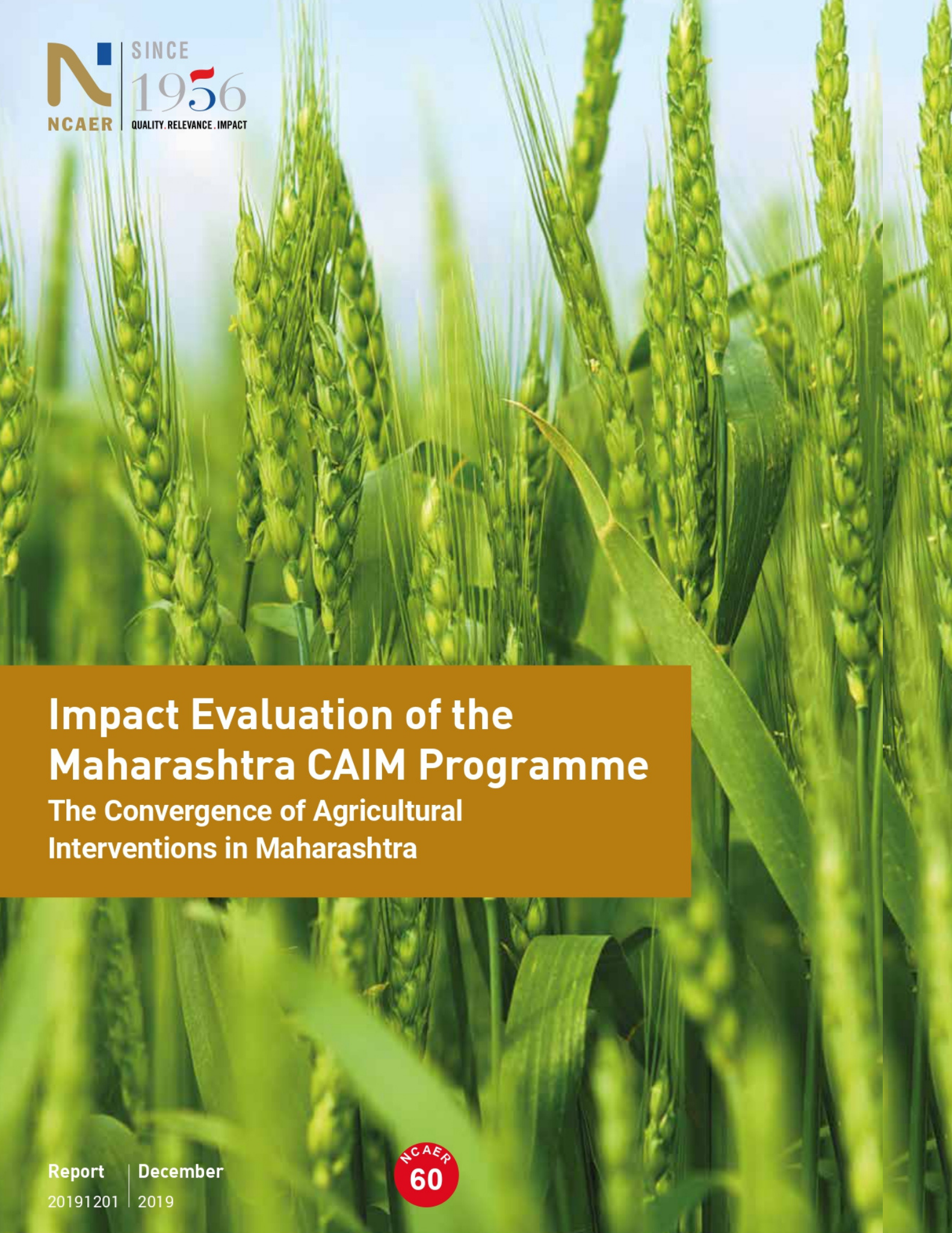Impact Evaluation of the Maharashtra CAIM Programme
Saurabh Bandyopadhyay
Laxmi Joshi
Tarujyoti Buragohain
Prabir Kumar Chaudhuri
Animesh Sharma
December 2019
The Vidarbha region in Maharashtra since long been facing an acute agrarian crisis, causing distress to a large part of the local population whose primary occupation is agriculture. The crisis has been shaped by a number of factors, including fragmentation of land leading to tiny landholdings, scanty and irregular rainfall, sparse irrigation facilities, and lack of opportunities for non-farm activities. Six of the 11 constituent districts of Vidarbha—Akola, Amravati, Buldhana, Wardha, Washim, and Yavatmal—have been most adversely affected by the crisis, which has tragically led even to a spate of suicides by farmers in the region. In this backdrop, the Government of Maharashtra, the International Fund for Agricultural Development (IFAD), and the Sir Ratan Tata Trust (SRTT) joined hands to form a consortium to fund a programme to ensure a steady increase in the incomes of the poor farmers and farm workers in the rural hinterland of Vidarbha. Implementation of this programme, titled, Convergence of Agriculture Interventions in Maharashtra (CAIM), commenced in 2012 and ended in December 2018.
A socio-economic impact evaluation study was carried out by NCAER during January-June, 2019 which observed that the CAIM supported programmes had noticeably and sustainably enhanced the living conditions of the households and villages in distress, with a large number of households benefitting from it. The programme has helped achieve considerable level of women’s empowerment and tangible long-term benefits for the targeted population through various means, including debt redemption, drudgery reduction, a micro livelihood plan, social enterprises, and joint asset ownership.
Agriculture and Rural Development
Impact Evaluation of the Maharashtra CAIM (Convergence of Agriculture Intervention in Maharashtra) Programme







